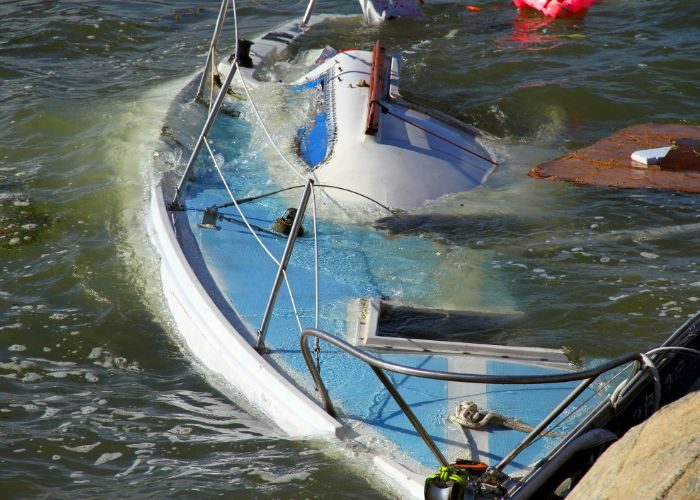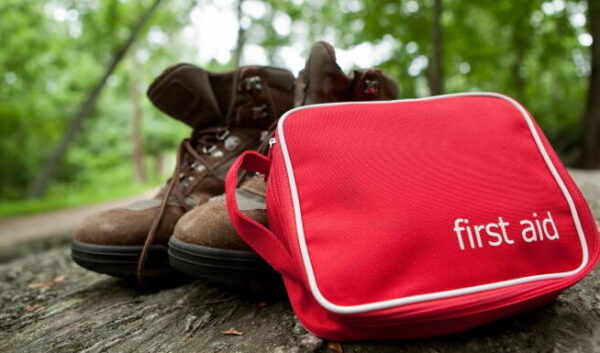North Carolina boasts an impressive 320 miles of coastline and roughly 12,000 miles of bays, sounds, and wetlands, adding to the many lakes, rivers, and other local bodies of water. This diverse aquatic landscape makes the Tar Heel State an ideal destination for water enthusiasts of all skill levels. However, skill does not always protect people from the possibility of maritime accidents, especially those due to someone else’s negligence.
In 2022, there were 20 boating accident fatalities and 143 boating accidents reported in North Carolina. If you or a loved one were recently injured in a boat accident, then you should consider reaching out to a qualified boat accident attorney as soon as possible.
At Ward and Smith Personal Injury, our maritime accident attorneys have years of experience representing the victims of boating and watercraft accidents in North Carolina. We understand that personal injury cases involving issues specific to navigable waterways require a deep understanding of both maritime law and state negligence laws. That is why we use all available resources to help you get compensation for the damages you need and deserve.
We represent clients in the following:
- Boating accidents involving recreational and commercial boats
- Water skiing, jet skiing, kayaking, canoeing, paddling boarding, and tubing accidents
- Harbor or dock injuries or wrongful deaths
- Offshore injuries
- Jones Act cases
Below, learn more about boating accidents, the injuries associated with them, and how the lawyers here at Ward and Smith can help determine if you may be qualified to file a boat accident lawsuit for financial compensation.
Types of Vessels Involved in Boating Crashes
According to data from the U.S. Coast Guard, the most common types of vessels mentioned in accident reports include motorboats, personal watercrafts, and cabin motorboats. Here is an overview of statistics from 2022 that represent the different vessels involved in recreational boating accidents:
- Jet Ski Accidents: In 2020, there were about 620 reported jet ski accidents that resulted in 476 injuries and 50 fatalities.
- Propeller Boat Accidents: In 2022, there were 247 incidents involving propellers hitting people that resulted in 241 injuries and 39 deaths.
- Towboat Accidents: In 2022, 31 vessels were involved in accidents while being towed which resulted in four injuries and one fatality.
- Pontoon Boat Accidents: In 2022, there were about 147 reported injuries that happened as a result of pontoon boat accidents and 54 deaths. Thirty-six of those fatalities were the result of drownings.
- Kayaks and Canoes: In 2022, there were 132 total deaths, including 118 drownings, as a result of kayaking or canoeing accidents.
- Commercial Boating Accidents: Jones Act cases allow sailors to seek compensation when their captain or crew members’ negligence led to the accident.
In 2022, about 11,770,383 recreational vessels were registered throughout the United States. If you own one of them, then it is important to fully understand all the safety rules that you need to follow. It is equally important to understand what causes most boating accidents so that you can help avoid them when possible.
What Causes Boating Accidents?
Boating accidents can result in devastating outcomes, such as loss of life and catastrophic injuries. According to the Coast Guard, the most common types of vessels involved in fatal accidents are open motorboats and personal watercrafts. The North Carolina Wildlife Resources Commission has identified several contributing factors to these incidents. The following are some of the most common causes of boating accidents in North Carolina:
- Operator error, including improper lookout: Getting distracted while driving boats or personal watercraft caused about 602 boating accidents in 2022, resulting in 45 deaths and 308 injuries.
- Careless or reckless operation
- Operator inexperience: Different states have different rules, so make sure you are aware of North Carolina’s regulations before boating. Inexperienced operators caused 464 accidents, 69 deaths, and 249 injuries in 2022.
- Boating under the influence: Alcohol was a factor in 215 boating accidents, leading to 88 deaths and 148 injuries. Just like driving, 0.08% is the legal limit for operating a boat.
- Drug use also resulted in eight accidents, six deaths, and two injuries in 2022.
- Speeding was a factor in 320 accidents in 2022, resulting in 35 deaths and 288 injuries.
- Boat part failure
- Weather conditions
- Violating navigation rules
- Wake
- Hazardous waters
If you are not sure what caused your accident, then consider contacting local boat accident lawyers who can help you investigate your crash. You will not be able to move forward with any type of lawsuit until you determine what may have caused your accident, and therefore, who may have been liable.
What Is the Primary Cause of Boating Fatalities?
According to the Coast Guard, nationwide there were 636 boating fatalities in 2022. In 2021, there were 658. The number one cause of boating fatalities was alcohol-related. Most boat accident deaths occur on calm, serene days where confidence is high and safety precautions are lax.
If your loved one was fatally injured in a boating accident, then the right boat accident lawyers can help you determine if you have the basis to seek out a wrongful death lawsuit.
What Should You Do After a Boating Accident in North Carolina?
Once you are back safely on land, there are certain steps you can take to help strengthen your personal injury claim.
- Take photos and document the scene of the accident if possible.
- Get contact information from witnesses who saw what happened or who may have helped after the incident occurred.
- Seek medical attention right away.
It is important to remember that time is of the essence when it comes to filing a personal injury claim following a boating accident in North Carolina. There are strict statutes of limitations that limit the amount of time you have to bring a claim; therefore, it is important to seek legal representation as soon as possible. Investigating the accident in a timely manner is important because evidence could degrade over time.
Common Injuries After a Boating Accident
Boating accidents can lead to serious injuries including:
- Drowning
- Head injuries
- Broken bones
- Dehydration and sunstroke
- Chest trauma
- Hypothermia
- Carbon monoxide poisoning
- Internal injuries
If your injuries are serious, then it may be best to consult with a boat injury lawyer to learn more about your options. Catastrophic injuries often result in significant medical expenses and time off of work. A successful boat accident lawsuit can help recover compensation for these losses.
Reporting a Boating or Watercraft Accident
In North Carolina, a vessel operator is required by law to provide assistance after an accident. This includes alerting the proper authorities and providing help to any injured parties. Additionally, filing a “Report of Casualty” with the NC Wildlife Resources Commission is required for most accidents if there was death, injury, or damage amounting to more than $2,000 or the total loss of the boat.
When Is a Boating Accident Report Required?
Boating accidents that occur on public waters should be reported to the North Carolina Wildlife Resources Commission when there has been any type of injury, loss of life, physical damage to property exceeding $2,000, or when someone has disappeared. You can report your accident at 800-662-7137.
Liability in Boating or Watercraft Accident in North Carolina
When a negligent or careless watercraft operator causes an accident, the injured parties may be able to recoup damages through legal action. Depending on the circumstances of the case, there are several potential courses of legal action available.
In North Carolina, boating negligence cases must satisfy the same elements as other personal injury lawsuits: duty, breach of duty, causation, and harm. A watercraft operator is expected to exercise reasonable care for the safety of others on the waterways and must operate their boat or personal watercraft in a safe manner.
Whether you have been injured due to someone else’s negligence or are dealing with another issue related to maritime law, our dedicated team of personal injury attorneys can help.
Who is Responsible for a Boating or Watercraft Accident?
Under North Carolina’s strict contributory negligence standard, you will not be able to seek out compensation if you were also at fault for the accident.
Federal maritime laws, however, work on a comparative fault principle, which is different. It allows those at fault to still seek partial compensation.
Since these overlapping laws can get complicated, it is best to hire a boat accident law firm who can guide you on how to best navigate your situation in order to build the strongest case possible.
Boat accident lawyers can help you gather up valuable evidence, like a copy of your accident report, to help you prove fault. If the other side is trying to falsely accuse you of negligence, then the right boating accident lawyer can help you dispel those false allegations and fight for rightful compensation.
Do Federal Maritime Laws Apply to North Carolina Boat Accidents?
Unlike car crashes and other personal injury claims, boating accidents are not always so straightforward in North Carolina because federal law often applies. Injuries that occur on navigable waters capable of being used for interstate or foreign commerce are subject to federal maritime law, and this is not just limited to the ocean.
It includes the Intracoastal Waterway (ICW) and bodies of water such as harbors, rivers, and lakes, as well as accidents involving recreational boating. The law may also be applicable to injuries that occur on land, provided that there is a significant connection between maritime activity and the injury on land.
Additionally, application of federal law may lead to prosecution in federal court. These cases are complex because of the extensive history of case law and the need to apply specific legal standards. Having the guidance of an experienced attorney is key to pursuing a successful outcome in your case.
If you have questions about how federal law will impact your case, then it is best to consult with a local boat accident lawyer for more information.
Compensation for Damages
When negligence has been proven, the victim can pursue damages for medical bills, lost wages, pain and suffering, and other losses resulting from the accident. The purpose of awarding damages is to restore the injured party to their previous state under the law. However, when dealing with severe personal injuries or loss of life, it is impossible to fully restore the injured party.
Boat accident settlements in these situations can be large because injuries might have long-term, or even permanent, effects on the injured person. When someone has lost their life, for instance, boat accident settlements might include damages like funeral expenses, a loss of financial support from the person, and emotional distress. The value of these damages can be substantial in boating accidents, so be sure to consult with an attorney who can help you fight for the maximum amount of compensation possible.
While it is impossible to guarantee boat accident settlements, working with a law firm that has a history of successful results can help to increase the likelihood of receiving fair compensation for damages. Ward and Smith has a proven track record of success, having secured a $3.7 million verdict for a marine accident wrongful death case. If you would like to learn more about Ward and Smith’s successful outcomes, please review our results and client testimonials.
Working With a Boating Accident Lawyer: Frequently Asked Questions
Below, we will go over some of the most commonly asked questions about boating accidents. If you have more questions, it may be best to consult with a boat lawyer to get specific legal counsel.
How do boat accident attorneys work?
Once you hire a boat accident attorney, they will get to work on investigating the cause of the accident and looking for evidence that proves that the other party was responsible for the incident. This may include working with subject matter experts who can comment on boat mechanics, medical injuries, and more. The right boat accident law firm can also help you file all the proper paperwork, negotiate with your insurance provider and/or the other party, and take your case to court if the other party will not settle.
How much do boat accident attorneys charge?
Many boat accident lawyers work on a contingency fee basis. This type of payment arrangement allows you to get the legal help you need without paying any money upfront. Your lawyer will only get paid when you do. Once you get your settlement check, your lawyer will get an agreed-upon percentage of your overall award.
How do I find a boating accident lawyer near me?
The best boat accident attorney for your case should be local, experienced, well-respected, and ready to take on your case. To find that type of representation, check out your nearby law firms to see what lawyers have the right qualifications. You can check out the attorney’s results, testimonials, and reviews to get a better idea of the quality of service they provide.
Call a Boat Accident Attorney for a Free Consultation
Have you recently experienced a boating accident? Was your loved one involved in a fatal boating crash? Under these circumstances, it makes sense to reach out to a boat accident attorney to learn more about your legal rights and options moving forward.
Depending on what caused the accident and the extent of your losses, the right boat injury attorney may be able to help you file a claim for compensation from the responsible party. If you are not sure what caused your crash or you need more information about the law, then we would love to hear from you.
Schedule a meeting with our boating attorneys here at Ward and Smith now to get started.
Boating Accident Representative Experience
Past results are no guarantee of future results. The summaries are not intended to indicate or guarantee that any of the same or similar results can be achieved in future matters; the outcome of a matter depends upon a number of factors. These summaries are intended only to provide general information about the experience of our attorneys. Summaries are drawn from 1992 through the present.













